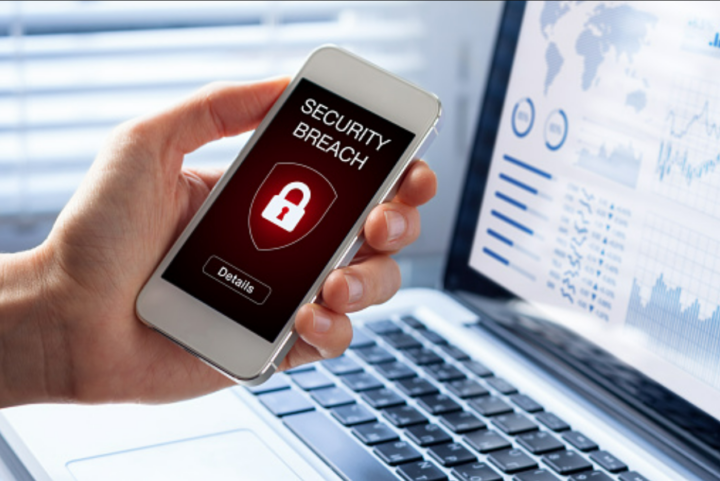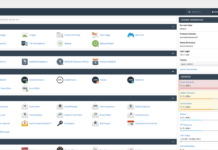 Cybercriminals target businesses because of the numerous benefits they may gain. For example, they can sell your sensitive data to competitors. They may also disrupt your business by shutting down your website for some time or destroying it completely. Other hackers may steal money from you after accessing your online banking credentials.
Cybercriminals target businesses because of the numerous benefits they may gain. For example, they can sell your sensitive data to competitors. They may also disrupt your business by shutting down your website for some time or destroying it completely. Other hackers may steal money from you after accessing your online banking credentials.
It’s critical to learn how hackers can penetrate your business network. This way, you can seal the loopholes and protect your company from potential losses resulting from cyber-attacks.
This article will show you the ways in which hackers can access your computer systems and how you can protect your business network from them.
1. Stolen credentials from third-party websites and apps
Most people prefer using one password for all of their online accounts. So you’ll find them using the same username and password to access social media accounts as well as their work email or another account in your organization.
Cyber hackers may access the logins of one of your employee’s social media accounts. If they happen to use similar login credentials at your company, the hacker would have an easy entry point into your business network.
To avoid a scenario like this, use different passwords for each account. Train your employees to set unique passwords for their business accounts to prevent cyber hackers from getting into your business network. An enterprise password manager can make setting longer and unique passwords easier. All you’ll need to remember is the password to the password manager.
2. Email phishing
Email phishing involves sending unsuspecting emails to an organization’s employees to access the company’s network. Cyber attackers usually include an attachment in the email and encourage their victims to download it to their systems. These documents usually contain malware that can weaken your system, giving the hackers the access they need to accomplish their goals.
Tell your employees to ignore emails coming from outside your organization. This way, it will be difficult for phishing attacks to be successful, rendering your business network safe from hackers.
3. Employees’ personal devices

The covid-19 pandemic forced many companies to shift to remote work. As a result, many employees access company information using their own devices from home. Such devices may lack powerful security capabilities compared to those in the office.
Hackers may gain access to your network through employees’ personal devices, especially if they try to access your company information over public wi-fi. Insist on employees to avoid logging into your company network using public wi-fi. You may provide a budget for them to purchase devices that have robust cybersecurity capabilities.
4. USB malware attack
USB attacks involve using a USB drive to introduce malware into a computer system. Cyber attackers may intentionally drop USB drives in public places to entice people to plug them into their computers.
Don’t insert any USB flash drive into your computer unless you know and trust the source. Install anti-malware software on your devices to detect malware. This way, you’ll prevent malicious attacks from harming your business network.
5. Your website’s vulnerabilities
Software vulnerabilities are one of the ways hackers gain access to your website and business network. Websites run on plugins and themes, and these need to be updated regularly as developers create new versions that are tamper-proof and efficient.
Since most business owners rarely update their websites’ plugins and themes, hackers may use vulnerabilities in the older versions to gain access to your website. To protect your site from such attacks, regularly update your site’s plugins and themes.
6. Public wi-fi networks
Hackers can use public wi-fi to access your business network in many ways. A man-in-the-middle attack is a cyber attack where a third party intercepts the information being shared between two parties.
Man-in-the-middle attacks may be prevented by using a virtual private network (VPN) when sending important information to your clients or colleagues. The VPN will encrypt the communication, making it ineligible to hackers.
7. Security gaps in the servers
 Cyber hackers conduct attacks for several reasons. It may be to destroy your system and put you out of business. Cyber hackers can crash your computer system when they access your servers.
Cyber hackers conduct attacks for several reasons. It may be to destroy your system and put you out of business. Cyber hackers can crash your computer system when they access your servers.
They need to identify and exploit a security vulnerability in your servers to gain control. This way, they’ll send multiple commands into your business systems which crash your business applications.
Conclusion
Hackers target businesses to extort money from company owners, steal the identity of employees, or even sell sensitive data to your competitors. As a business owner, you should invest in cybersecurity to avoid becoming a victim of hackers. Cyber attacks may lead to your business closure or even financial repercussions from lawsuits.
Some of the ways hackers penetrate your business system include email phishing, USB malware attacks, man-in-the-middle attacks through public wi-fi, and many more. Follow the tips in this article to prevent your business from becoming the next victim.

















